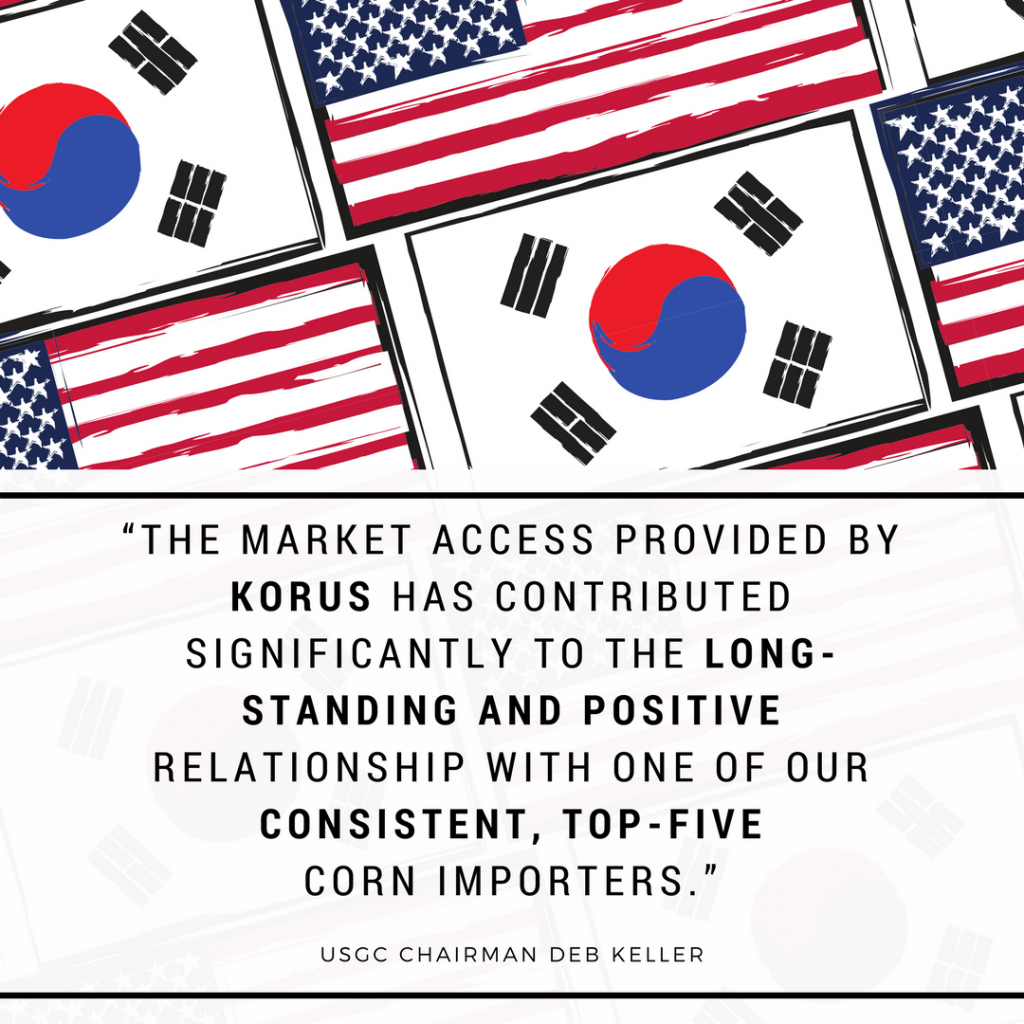The United States and South Korea announced this week the two governments have reached an “agreement in principle,” which will not impact the market access for U.S. coarse grains and co-products provided by the U.S. Korea-Free Trade Agreement (KORUS).
“This announcement is welcome news as South Korea has been a vital market for U.S. coarse grains and co-products for decades,” said Deb Keller, U.S. Grains Council (USGC) chairman and farmer from Iowa.
The agreement in principle is not formally part of KORUS but does include an agreement by South Korea to a product-by-product export cap of 70 percent of the average volume from the past three years. In exchange, the deal includes a permanent exemption for South Korea from the recently announced 25 percent steel tariff, but not from the 10 percent duty on aluminum imports.
The agreement also does not affect the market access provisions provided by KORUS for U.S. corn, barley, sorghum, ethanol and distiller’s dried grains with solubles (DDGS). These favorable trade terms compliment the Council’s work in South Korea since 1972 offering expertise on how to use corn, DDGS and, most recently, ethanol. This work has transformed the South Korean livestock and feed grains sectors over time and made the country one of the largest and most loyal customers of U.S. grain.
“The free trade agreement with South Korea solidified one of the Council’s greatest success stories,” Keller said. “The market access provided by KORUS has contributed significantly to the long-standing and positive relationship with one of our consistent, top-five corn importers.”
South Korea was the third largest market for U.S. corn in 2016/2017, hitting a six-year high at 5.6 million metric tons (220 million bushels). South Korea was also the third largest market for U.S. DDGS, setting a new record for the fifth year in a row at 979,000 tons. More than 96 percent of feed producers in South Korea now use DDGS in their rations, following the Council’s efforts to introduce and advocate for the feed ingredient.
Learn more about the Council’s work in South Korea here.
About The U.S. Grains Council
The U.S. Grains Council develops export markets for U.S. barley, corn, sorghum and related products including distiller’s dried grains with solubles (DDGS) and ethanol. With full-time presence in 28 locations, the Council operates programs in more than 50 countries and the European Union. The Council believes exports are vital to global economic development and to U.S. agriculture’s profitability. Detailed information about the Council and its programs is online at www.grains.org.

